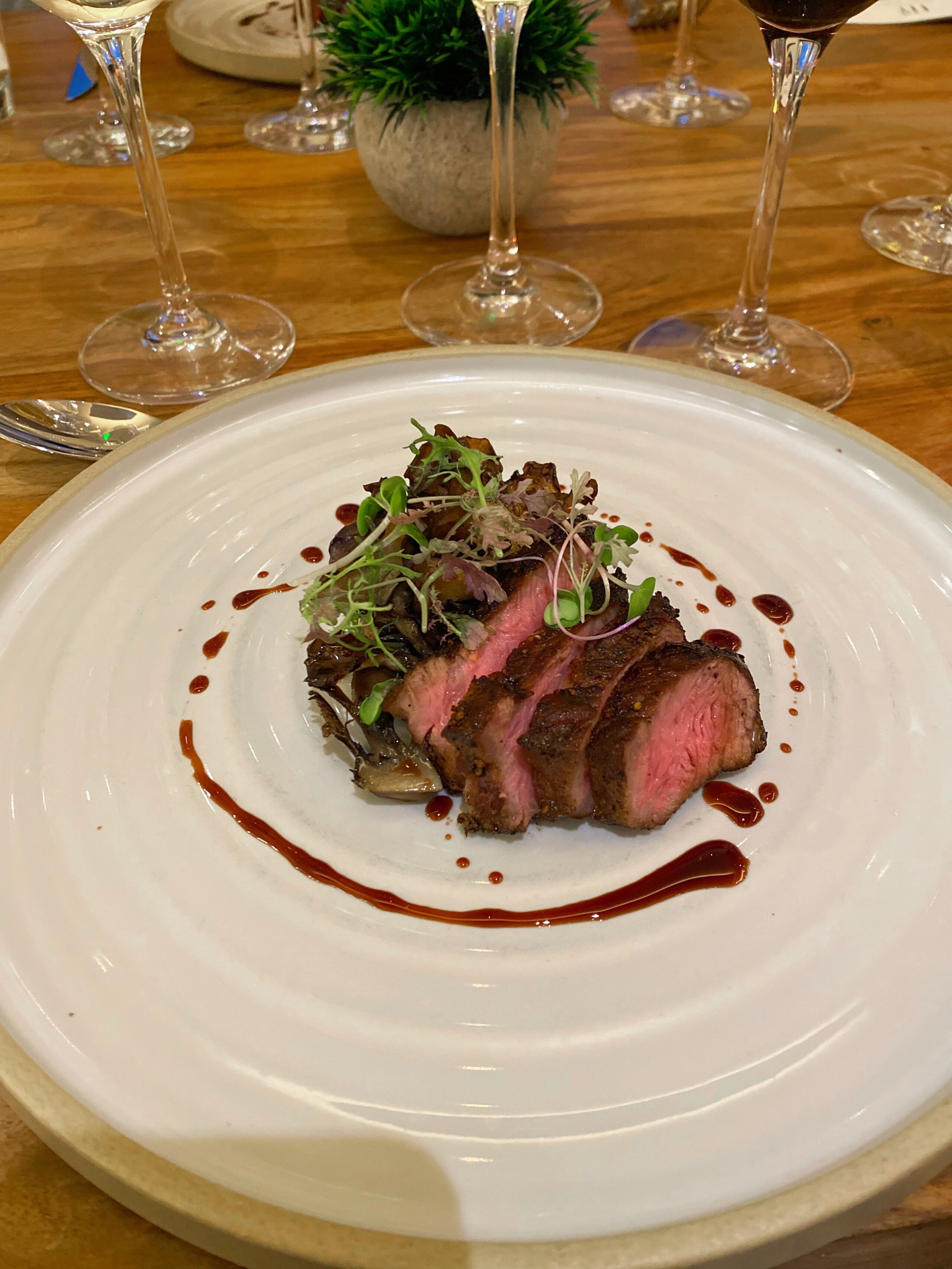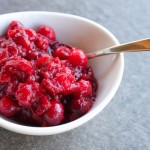how and why I started eating red meat again
Sharing some of the details on why I decided to add red meat back into my diet.
Hi friends! How are you? I hope you’re having a wonderful week! This morning, I have some 1:1 calls and then am going to take a short hike before getting the crew from school. Hope you have a wonderful day!
For today’s post, I wanted to do a reader’s request. After some of the DMs I’ve received on IG about the benefits of red meat, I got a couple of questions about when/why I decided to add it back into my life. OG readers (YAY thank you!) will probably remember that for a while I was a pescatarian, then vegetarian, I also toyed with veganism for a while, and I didn’t eat red meat for many years. I actually stopped eating red meat when I was seven or eight years old, started having it very occasionally during college, and then stopped again for quite a while.
After a hiatus from red meat, I found myself being drawn back for a multitude of reasons. Our bodies are wonderfully unique, and what suits one might not fit another. Red meat, often vilified, is a nutrient-rich powerhouse that, when approached mindfully, can offer remarkable advantages, particularly for women.
how and why I started eating red meat again
When I was pregnant with P, I found myself constantly craving red meat. I told my acupuncturist about it, and he said I needed the nutrients. He recommends ALL of his female patients to eat red meat. So, I went home and asked the Pilot to grill me a steak. You should have seen the joy on his face haha. He went to Whole Foods, got some amazing quality steaks, and I devoured the entire thing. It was kind of a short decision process for me: I knew I was craving it for a reason, so I decided to listen to my body. I haven’t looked back, and it’s now a consistent part of our routine. (Just a little note here: I don’t eat pork or lamb and have zero desire to have either of these things. Just not for me.)
Why Red Meat?
Red meat has numerous nutritional benefits, and I think it’s so tasty. Also, for a while, I was eating Beyond Burgers with a thousand ingredients that hurt my stomach (and gallbladder), and now, I eat burgers with three ingredients: grass-fed beef, salt, and pepper… maybe a little Worcestershire sauce.
Nutrient Benefits:
Iron: Red meat contains heme iron, the form of iron most readily absorbed by the body. This is critical for maintaining robust energy levels, supporting cognitive function, and preventing iron-deficiency anemia, which disproportionately affects women. During menstruation, women lose blood, and with it, they lose iron. The iron lost through menstrual blood needs to be replenished to maintain healthy iron levels in the body. If this iron is not replaced through dietary intake, it can lead to iron deficiency, and in more severe cases, iron-deficiency anemia.
Protein Powers: As active women, protein is our ally for muscle health and repair. Red meat delivers high-quality protein, complete with all the essential amino acids our bodies crave.
B Vitamins: Red meat is a treasure trove of various B vitamins, including B12, B6, niacin, and riboflavin. These nutrients play pivotal roles in energy metabolism, brain function, and hormonal equilibrium.
Zinc: Zinc, found abundantly in red meat, is crucial for immune function, wound healing, and DNA synthesis. A strong immune system is especially vital for women navigating various life stages.
Omega-3: While not as concentrated as in fatty fish, red meat contributes omega-3 fatty acids, essential for heart health, reducing inflammation, and supporting brain function.
Comparing Nutrients Unique to Meat:
Now, let’s shine a spotlight on some nutrients that are either absent or less bioavailable in plant-based diets:
Complete Proteins: Animal products like red meat provide all essential amino acids, making them complete proteins. While plant sources can be combined to achieve this, it requires careful planning.
Bioavailable Iron: Heme iron from red meat is more efficiently absorbed than non-heme iron from plant sources. Combining it with vitamin C-rich foods enhances absorption.
B12: Vitamin B12 is predominantly found in animal products. A deficiency can lead to fatigue, weakness, and neurological issues, making red meat an important source.
Creatine: Found exclusively in animal products, creatine aids muscle energy production, benefiting those engaging in high-intensity workouts and challenging strength training routines.
Reintroducing red meat into my diet has been transformative. Improved energy, enhanced muscle recovery, and a renewed sense of vitality are just a few of the remarkable changes I’ve experienced. It’s also worth mentioning here that I’m very particular about where our meat is sourced. We only eat certified-organic and grass-fed beef while we’re at home. While I go out to eat, I typically eat fish or vegetarian options. (Unless we’re at Fleming’s of course.)
I get almost all of our meat and seafood from ButcherBox because they have such high-quality meat. You can check out my full review of ButcherBox here and this link gets you $50 off your first order.
Just like anything else, I think moderation truly is the key. We don’t eat red meat every single day. We have it once, maybe twice a week, and use excellent sources. In between our red meat dinner nights, we’re having fish, chicken, and plant-based meals. Variety is the spice of life, and alternating the ingredients you use will also vary the nutrients you’re getting. I think it’s beneficial to switch up your diet and routine throughout the week.
If you’re contemplating reintroducing red meat or adjusting your diet in any way, approach it with curiosity and a mindful perspective. Consult with healthcare professionals to ensure it aligns with your unique health goals. Nutritional choices should evolve with our bodies. While red meat may not be everyone’s choice, it’s about understanding and responding to your body’s unique needs.
Here’s to embracing what works best for each of us on our distinctive wellness journeys.
xo
Gina















This was a very thoughtful post. Also, l-carnitine is mostly found in red meats, and it’s actually very essential. You need it to metabolize fats for energy. I was vegetarian from age 14 to my mid-twenties, and then vegan from then until my third child was born (about 12 more years). When he was born they tested him for carnitine deficiency and he came up with zero carnitine in his blood, causing them to mis-diagnose him with a genetic metabolic disorder (without testing him). We were told to put him on carnitine supplements, along with his formula. (Baby formula has carnitine in it.)
The supplement just seemed to make him ill, and never slept. I did a lot of research and found that babies do not synthesize their own carnitine when in utero; they must get it from the mother. Years of being vegetarian and vegan and having three babies had depleted my carnitine stores, and after they agreed to test me they found I had zero carnitine in my blood. So it was no wonder my baby didn’t have any. I insisted they test me for the metabolic disorder, and I didn’t have it, so it was definitely a dietary issue. I started eating red meats again, and both my son and I had normal carnitine levels within a few weeks and he didn’t need the supplements.
There’ s a lot of concern about b12 and protein for vegan moms, but nobody had ever told me about carnitine! It was pretty scary, and I was so mad at the doctor who wouldn’t test my son, just went off a carnitine blood test to “diagnose” him, and then after finding out I had zero carnitine, wanted to write a paper about me because he’d “never seen anybody walking around healthy with zero carnitine!” Ugh.